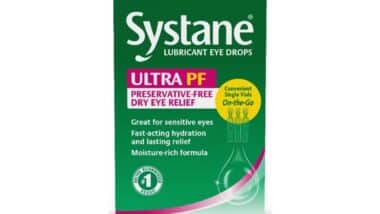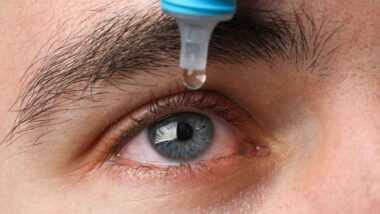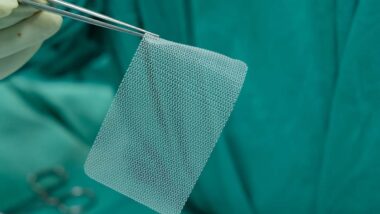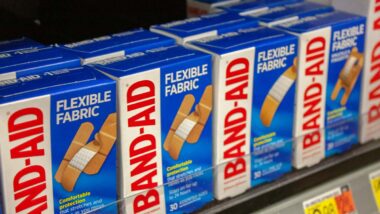Vaginal Mesh Lawsuit Alleges Erosion, Infection Problems
By Amanda Antell
 Minnesota plaintiff Phyllis D. Bailey is suing Ethicon Inc. LLC and Johnson & Johnson for the injuries she sustained from using their vaginal mesh product, the Prolene Soft.
Minnesota plaintiff Phyllis D. Bailey is suing Ethicon Inc. LLC and Johnson & Johnson for the injuries she sustained from using their vaginal mesh product, the Prolene Soft.
On March 11, 2009, the Prolene Soft Vaginal Mesh product was implanted into the plaintiff to treat her pelvic organ prolapse (POP). However, soon after the surgery, the plaintiff found herself in debilitating pain, leading her physicians to discover she was suffering from vaginal mesh erosion and infection. The plaintiff had to undergo revision surgery to correct the problem.
Bailey claims that at no point in time was she made aware of these possible vaginal mesh side effects. Her vaginal mesh lawsuit states that her physician was also unaware of the possibility of these vaginal mesh complications. The plaintiff states that had she known about these possibilities, she never would have opted for a vaginal mesh implant. Bailey maintains that if the defendant companies had warned her, then she never would have suffered such debilitating side effects.
Bailey is suing Johnson & Johnson, and their mesh manufacturing branch, Ethicon for manufacturing, distributing, selling, and marketing a dangerous product. The charges against the companies include negligence, concealing information, false advertising and misrepresenting a product.
Overview of Vaginal Mesh Complications
When vaginal mesh implants were first created by surgeons, many women saw them as a blessing because they could treat their pelvic organ prolapse (POP) and stress urinary incontinence (SUI) discretely. In 2004, just a few years after the vaginal mesh implants were approved for market, the U.S. Food & Drug Administration (FDA) started receiving alarming injury reports regarding the mesh products. By October 12, 2008, the FDA made a public warning about the side effects associated with vaginal mesh, announcing that it had received more than 1,000 vaginal mesh injury reports.
The vaginal mesh side effects reported by patients included erosion, infection, bladder perforation, and tissue tearing and scarring. Vaginal mesh is typically placed directly in the damaged tissue area because ideally, the tissue and muscle will use the mesh as a stem, and repair itself by using the mesh as a support wall. At the time vaginal mesh was developed, it was thought to be biologically safe and could be placed permanently in women’s bodies. However, numerous women have suffered debilitating side effects from the vaginal mesh implants.
Currently, the FDA categorizes mesh products into four different categories, designated by their different uses and the materials they are made from:
- Non-Absorbable Synthetic: More than half of all mesh products approved by the FDA are in this group, with the main component of this group being plastic or polyester. Ninety-one percent of these mesh products are made from a popular, non-absorbable plastic called polypropylene. These mesh products are designed for long-term or permanent treatments.
- Absorbable Synthetic: Unlike its cousin, this variety of mesh loses strength and durability, and is not meant to act as a permanent repair. Ideally, the patient’s growing tissue would grow over the mesh and would be strong enough to sustain device removal.
- Biologic: These mesh products are made from animal tissue and are specifically meant to be implanted permanently into the human body.
- Composite: This mesh is made from a combination of materials.
Vaginal Mesh Lawsuits Still Being Filed
In 2011, there were 4,000 vaginal mesh injury reports submitted to the FDA, which was higher than the annual rate for the previous six years. Additionally, the FDA started requiring vaginal mesh manufacturers to conduct post-market testing on these products, and to submit their results accordingly.
If you believe that you or a loved one have been the victim of a vaginal mesh injury, you have legal options. Please visit the Transvaginal Mesh, Vaginal Sling, Vaginal Mesh and Bladder Sling Class Action Lawsuit Investigation. There, you can submit your claim for a free legal review and if it qualifies for legal action, a seasoned vaginal mesh lawyer will contact you for a free, no-obligation consultation. You will be guided through the litigation process at no out-of-pocket expenses or hidden fees. The vaginal mesh injury attorneys working this investigation do not get paid until you do.
All medical device, dangerous drug and medical class action and lawsuit news updates are listed in the Drug and Medical Device section of Top Class Actions.
Top Class Actions Legal Statement














